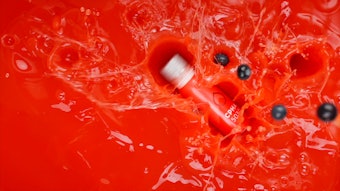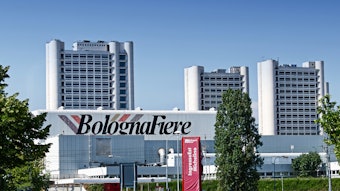- Anti-aging products tend to dominate beauty sales in most countries globally, but significant sales of beauty-from-within products remain concentrated in just a few markets.
- In Japan, Beauty supplements accounted for 17% of dietary supplement sales in 2006, and this figure rose to 18% by 2009.
- Despite clear evidence that Western consumers are willing to pay a premium for skin care, consumers in North America and Western Europe, on the whole, do not seem to be buying into the concept of beauty-from-within.
- Baby boomers hold the key to the future of nutraceuticals.
The recession and its aftermath, according to Euromonitor International, did nothing to dampen the global desire to remain young-looking. On the contrary, in fact, anti-agers was one of the few categories within beauty to remain relatively unscathed. However, while anti-agers tend to dominate beauty sales in most countries globally, sales of beauty-from-within products remain concentrated in just a few markets.
In Japan, Nutraceuticals Go from Strength to Strength
Unlike Japan’s ailing beauty industry, which is set to see declines in many areas through 2014, its beauty supplement industry is thriving. Beauty supplements accounted for 17% of dietary supplement sales in 2006, and this figure rose to 18% by 2009. Furthermore, many ingredient trends and product innovations originate in Japan. The trend for adding collagen to everyday foods and drinks, such as Nescafé with Collagen from Nestlé, has caught on in other Asian countries, with products such as Vitagen Collagen drink from Vitagen hitting the market in Malaysia recently.
Japanese Consumers Prefer Supplements Over Other Formats Despite the popularity of fortified beauty foods and drinks in Japan, many consumers still consider beauty supplements to be more effective. The main reason for this is that many fortified products contain only a small amount of beauty-enhancing nutrients compared with the concentrated format seen in dietary supplements. Ultimately, beauty foods and drinks are not expected to replace beauty dietary supplements, nor are they marketed as substitutes for them.
Remaining Market Primarily Concentrated in Asia
Japan remains, by far, the largest market globally for dietary supplements with a beauty positioning. With sales of $1.2 billion in 2009, the country accounted for 43% of global beauty supplement sales, followed by China with sales of $724 million—a figure that looks set to rise dramatically as Chinese consumers become more affluent. The concept of beauty-from-within also sits well with traditional Chinese medicine, as traditional herbal dietary supplements such as E Jiao, Lingzhi and Aweto are popularly recognized by consumers in rural areas as traditional Chinese products that benefit overall well-being.
However, sales in many countries are negligible. Most consumers in the key affluent Western countries responsible for the lion’s share of beauty sales appear to remain unconvinced.
Western Demand for Anti-aging Doesn’t Translate to Nutraceutical Boom
While global skin care value growth slowed to 3% in 2009, down from 5% in 2008, anti-agers remained the star performer, expanding by 7%—or only two percentage points less than in 2008. This adds substance to the belief that most consumers globally will sacrifice other consumer goods before putting off attempts to hold on to a youthful appearance.
The desire to stay young-looking was also evident in other industries, as shown by figures from the American Academy of Cosmetic Surgery. According to its data, the number of face-lifts in the U.S. rose from 20,478 in 2008 to 34,455 in 2009—a 44% increase despite the recession. A similar story was seen in the U.K. Data issued by The British Association of Aesthetic Plastic Surgeons (BAAPS) shows that the number of cosmetic surgery procedures undertaken rose by just under 7% in 2009.
However, despite clear evidence that consumers are willing to pay a premium for their looks, and skin in particular, consumers in North America and Western Europe, on the whole, do not seem to be buying into the concept of beauty-from-within.
Differing Results for Beauty-from-Within Brands
The fortunes of various beauty-from-within products were mixed, but, on the whole, there was growth for some of the key skin care nutraceutical brands in major markets such as the U.K., where the Imedeen brand saw sales of its combination dietary supplements rise in 2009. Heavy advertising of the brand was a key factor behind its success in the market, as it helped familiarize consumers with the concept of skin care from within.
On the other hand, there were numerous high-profile cases of nutraceutical and nutricosmetic products being withdrawn or running into regulatory difficulties. Avon withdrew from the skin nutraceutical segment in 2010 following ailing and stagnant sales in a number of markets. Even in Japan, where skin care from within is accepted by many consumers, Avon’s product did not perform as well as expected.
The lycopene-containing supplement Innéov Fermeté, a joint collaboration between food giant Nestlé and global personal care player L’Oréal was one of the major launches of 2010. Lycopene was initially marketed on the basis of its cancer-fighting properties.
However, it was soon promoted as a beauty/skin health enhancer. Innéov Fermeté is designed to be taken daily, and reportedly slows the effects of skin aging. It is currently being sold in parts of Europe and Latin America. Even with the might of Nestlé’s research and development budget, however, Fermeté suffered a setback when it fell foul of the European Food Safety Authority (EFSA) in May 2010, and the company was forced to withdraw the product claim relating to the improvement of dry skin.
Baby Boomers Key to Future Growth
The industry has attempted to broaden the appeal of nutraceuticals to different consumer groups such as men, with launches such as Viviscal and Viviscal for Men (supplements designed to prevent hair thinning). However, arguably, baby boomers still hold the key to the future of nutraceuticals. Baby boomers do not just expect to live longer, they also expect to look as good as they feel.
This incredibly influential group (78 million-strong in the U.S. and spending more than $2 trillion each year) has set in motion some of the key shifts being experienced today—including the health and wellness revolution, the social responsibility movement and the growth of segments and industries such as anti-aging skin care and cosmetic procedures. It is for this reason that the nutraceutical industry needs to focus on convincing this growing segment in the West if it is to grow beyond its current niche status globally.
Carrie Lennard is a research analyst at Euromonitor International.










